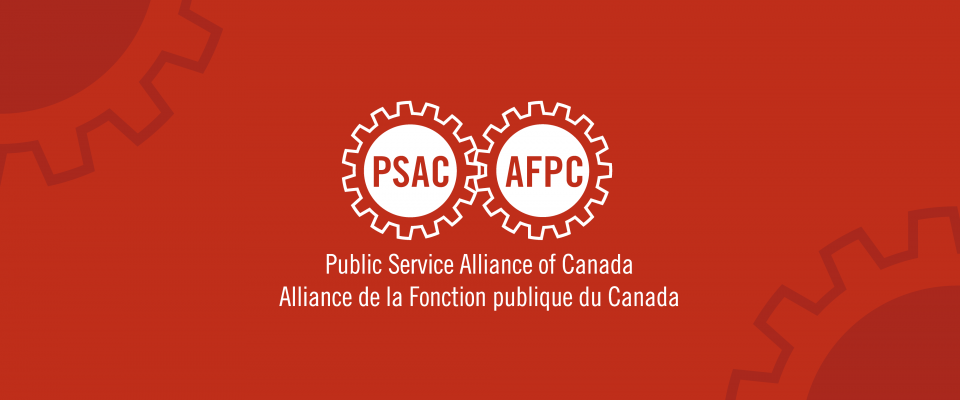- Did PSAC negotiate this change to move to Canada Life?
-
This change was initiated and operationalized by the employer and was not part of PSAC and other unions’ negotiations on a new health care plan. It also does not impact the improvements PSAC secured.
The employer transferred the Public Service Health Care Plan provider contract from Sun Life to Canada Life as part of a separate procurement process, resulting in changes for nearly 1.5 million federal public service workers, retirees, and their dependents.
The Government of Canada made the decision to transition to Canada Life, and it is their responsibility to hold Canada Life accountable for the many problems that members are facing.Before the move to Canada Life, PSAC provided the government with recommendations for a smooth transition for plan members, including for Canada Life to hire additional staff and increase its call centre capacity.
- What is PSAC doing to improve this situation?
-
PSAC is filing policy grievances in affected bargaining units. Generally, the policy grievances argue that the employer's actions violated the collective agreement by implementing the transition without regard for the rights of all members to a functioning health care plan, and doing so in a manner that violated the human rights of workers based on the grounds of disability, family status, age, sex, or gender identity and expression.
- What is PSAC asking for in its policy grievance?
-
PSAC is seeking remedies for the problems the transition caused, including but not limited to the following:
- a declaration that the employer has violated the collective agreement;
- an order that the employer compensate members for all harms experienced since the transition to Canada Life, including:
- general damages for all employees for the stress, aggravation, and pain and suffering they have experienced;
- damages for impacts to those who have experienced financial losses;
- damages under the Canadian Human Rights Act for adverse effects experienced on the basis of prohibited grounds.
- What do I do if I’m unsatisfied with Canada Life’s decision for my claim?
-
There is a very important distinction between a PSHCP appeal and a grievance.
A PSHCP appeal is your best course of action if Canada Life denied your claim or they approved it but reimbursed you less than you think you should have received. PSHCP appeals are heard on a quarterly basis by the Administration Authority. This is the quickest way to resolve your issue. The PSHCP appeal process can be found here.
Some examples of appeals include:
- You submitted a claim for medical equipment and were denied;
- Your drug claim was paid at a lower rate than you anticipated.
Grievances should not be used to deal with the denial of a claim by Canada Life. Instead, a grievance may be filed in the following circumstances:
- Canada Life failed to process a claim or provide reimbursement within a reasonable time;
- you were unable to reach Canada Life in a timely manner to obtain assistance;
- you were unable to submit a claim because of Canada Life’s conduct in some way;
- you experienced other issues that are directly attributable to Canada Life.
Grievances should focus on the employer’s responsibility under the collective agreement to provide a functioning health care plan. Where appropriate, the grievance should also allege discrimination under the Canada Human Rights Act and the relevant prohibited grounds under the collective agreement. For example, if you had to delay care for a condition related to your age or disability, you should allege discrimination on those (or any other) affected grounds.
If you have experienced delays because of Canada Life’s administration of your claim and you think an individual grievance may be appropriate, please contact your steward, a member of your union local executive, or your component labour relations officer to discuss it. They will be able to further explain the above information to you and to advise on whether your situation should be addressed through the PSHCP appeal process or the grievance process. Click here to find out how to contact your union.
- When is a grievance not an appropriate course of action?
-
You cannot grieve issues related to denial of claims or coverage under the Plan or if you received a lesser reimbursement than expected. These issues must be appealed following the PSHCP appeal procedure. The appeal process is also substantially quicker: over 90% of claims are decided within three months of submissions.
PSAC has outlined changes to the PSCHP. If the issue you have is related to the Plan coverage mentioned in the list, you cannot file a grievance. This includes, for example, the changes to physiotherapy coverage.
- I’m a retiree, can I file a grievance?
-
No. The grievance process is only available to active employees. The only exception to this is if you are a retiree, but the issue that you wish to grieve took place before you retired. Retirees can still put in an appeal to the Plan. For other issues that fit within the grievance parameters described above, please contact the National Association of Federal Retirees who will examine their options for recourse.
- What about generic substitution?
-
Regarding mandatory generic substitution, members can claim medical necessity and have their physician fill out a form asking for an exception. If they have already been through this process but had their claim rejected, Canada Life’s determination of medical necessity should be dealt with under the appeal process.
- What are the latest updates about the Public Service Dental Care Plan?
-
The Public Service Dental Care Plan, which is currently being re-negotiated for over 185,000 federal public service workers, continues to be administered by the Canada Life Assurance Company.
 Member Login
Member Login



